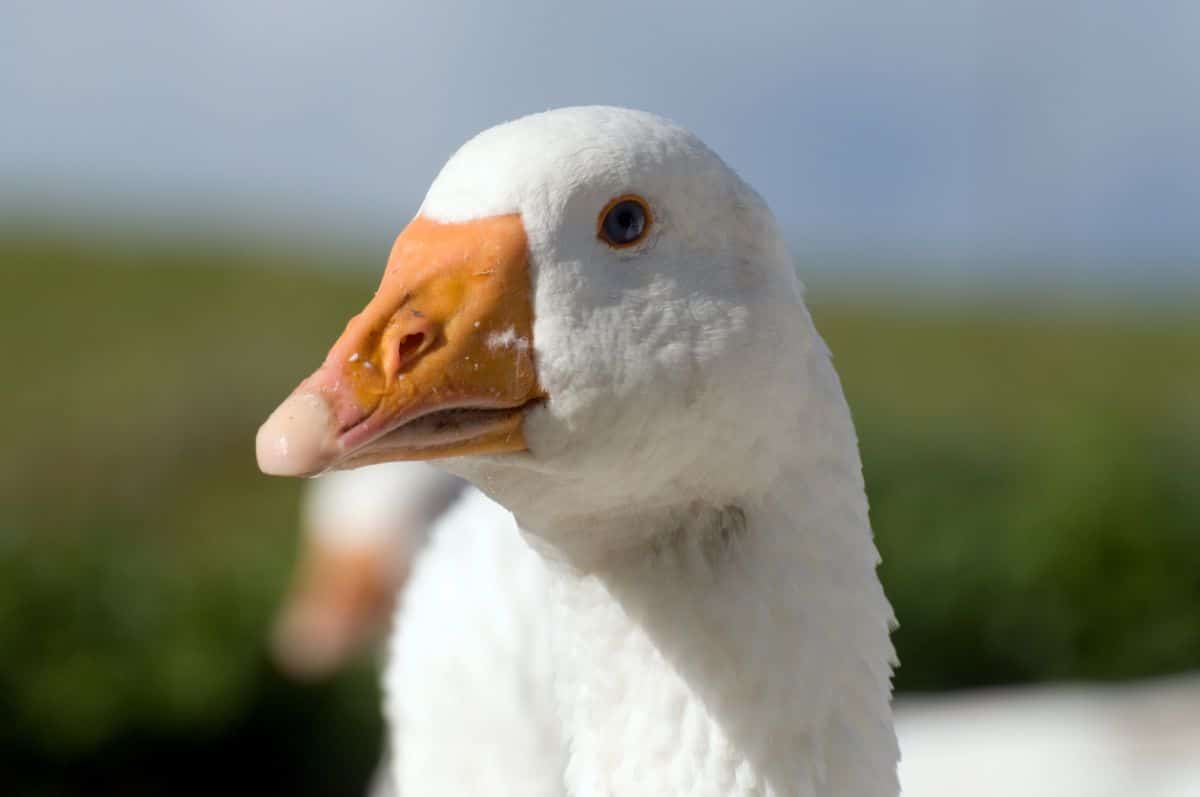Ducks are adorable birds that can often be friendly too. While they are commonly kept as livestock, many people choose to keep a pet duck instead.
So, can ducks be pets? If so, are ducks good pets, and what should you know to properly care for them?
Can You Have a Duck as a Pet?
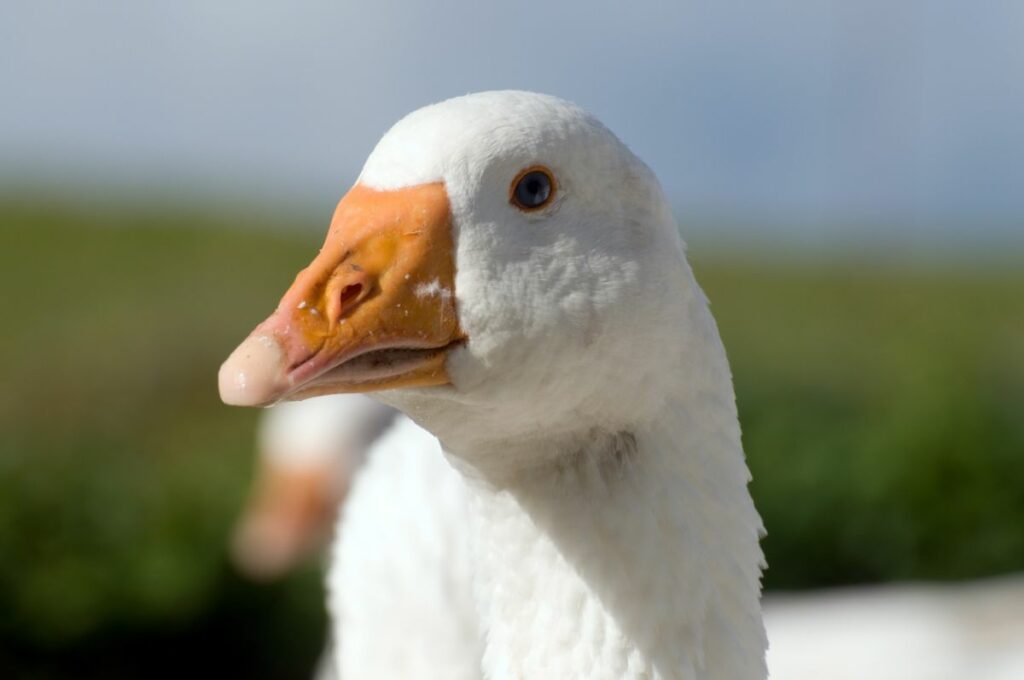
Yes, you can keep a duck as a pet. However, some breeds will make much better companions than others. Some towns may also have restrictions about which ducks you can keep as pets, so be sure to check those laws before bringing a duck home.
However, if you’re looking for an affectionate pet, a duck may not be right for you. Certain breeds are friendlier, but they won’t interact with you as much as a dog or cat might. So, keep that in mind when choosing the best pet for your home.
Like all pets, getting a duck shouldn’t be a last minute decision. Make sure they have all the necessary supplies, such as food, water, and shelter. Most duck breeds are also very social, so you may need to have more than one duck to keep them content.
Do Ducks Make Good Pets?
Yes and no. It all depends on what you’re looking for in a pet. If you’re looking for a pet to spend lots of quality time with, a duck probably isn’t for you.
Also, a duck indoor pet is not ideal, so if you don’t want your pet to stay outside, then you should choose a different animal. However, if you’re just looking for a cool animal that’s fun to observe and care for, then a duck may be a good match.
You shouldn’t choose to keep a pet duck just because they look cool. You need to consider their temperament and requirements before deciding to care for them. Do not expect to buy a pet duck harness or clothes for pet ducks because they thrive best if they’re not pampered too much. Ducks require much more independence than more common pets might.
Where Can You Find Pet Ducks for Sale?
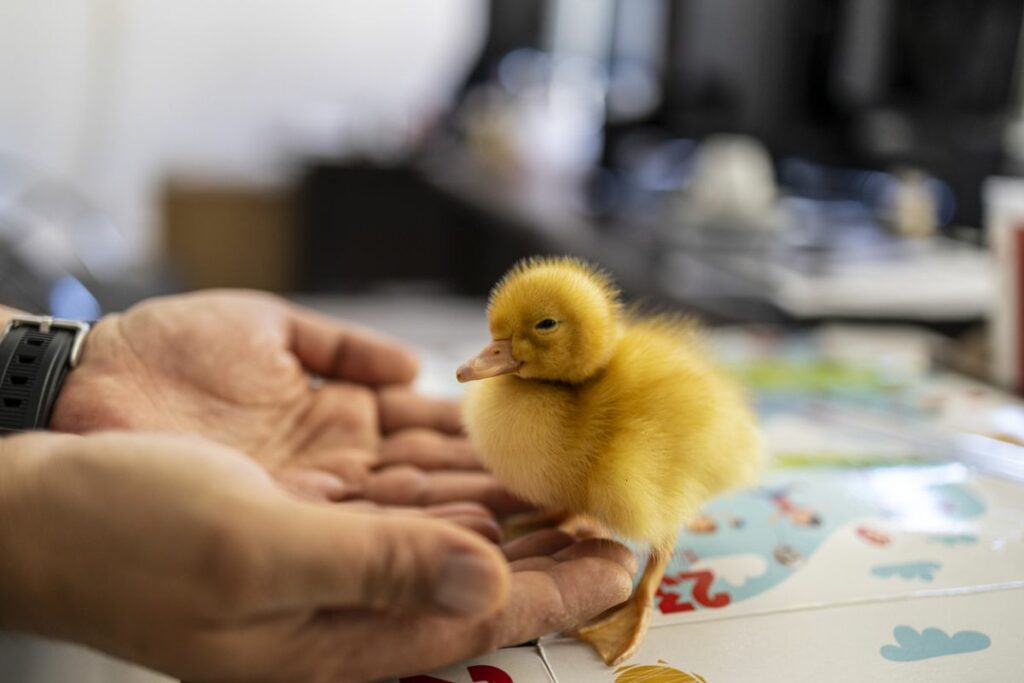
If you’re wondering, “where can I buy a pet duck?”, you should find a reputable breeder. The person who’s selling ducks should be knowledgeable about their breed and care. If they only seem to care about earning money, then search elsewhere. Otherwise, they might sell you a sick duck.
Even though ducks are commonly seen near lakes and ponds, you should never try to keep a wild duck or any wild animal. Wild animals thrive best in their natural habitat, and forcing them into captivity might cause their health to decline, especially if you don’t care for them properly. So, find a duck that has already been domesticated because keeping wild ducks as pets is usually unsafe and illegal.
How Much is a Pet Duck?
Most ducklings cost between $5 and $10 each, but the exact price depends on the breed. However, you’ll need to buy more than one duck to keep your feathered friends content. A baby duck pet is usually the best way to go so they can grow up being raised by you.
Best Ducks for Pets
While most ducks can make good pets with proper care, some breeds are friendlier and easier to care for than others. Here are the best pet duck breeds:
- Pekin Duck
- Cayuga Duck
- Call Duck
- Indian Runner Duck
No matter the types of pet ducks you choose, it’s always important to research the breed in advance. Each duck breed has unique requirements, so make sure you’re able to cater to their needs.
The Pekin Duck pet is the most popular because they’re docile and friendly. They’re easily recognized by their solid white feathers. So, they’re one of the best duck breeds for pets, but there are plenty of other breeds to consider too.
Common Pet Duck Names
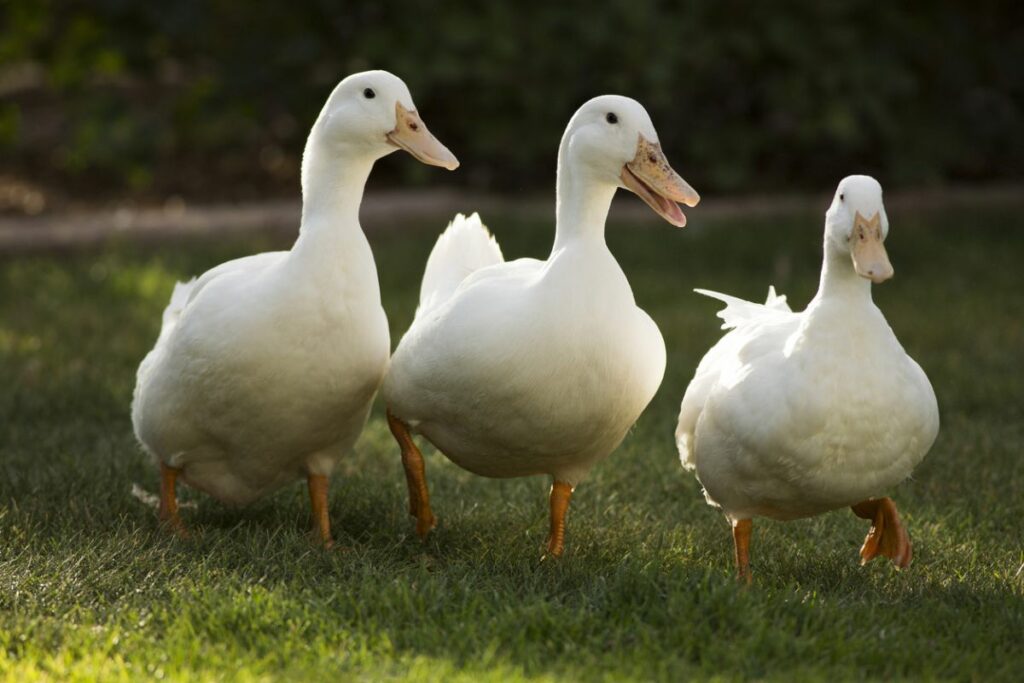
Once you choose the type of pet duck you want, you may also want to choose a name. Here are some common names for pet ducks to help you get some ideas:
- Daffy
- Donald
- Daisy
- Quackers
- Ducky
- Waddles
- Bubbles
- Aflac
- Bill
Most duck names are quirky, usually named after famous duck characters or puns. However, there’s no limit to what you name your pets, so feel free to be creative.
Duck Temperament and Behaviors
Most ducks are social creatures. They regularly engage with humans and other ducks, so they thrive when kept with more than one of their species. Raising ducks as pets usually involves more than one bird.
To show their happiness, ducks might wag their tails or bob their heads. They may also quack to communicate with each other. Ducks are usually much noisier than chickens, especially when they want treats.
Ducks love to spend time in the water. They use water to clean their feathers. When they clean themselves, they spread preen oil across their bodies to keep their feathers waterproof. They also enjoy playing in the water and searching for snacks as they swim.
Pet Duck Care Requirements
Even though every breed of duck has different needs, there are some general requirements that apply to all of them. Here are some tips for how to raise a duck as a pet. Be sure to thoroughly research all these aspects before bringing one home.
Pet Duck Enclosure
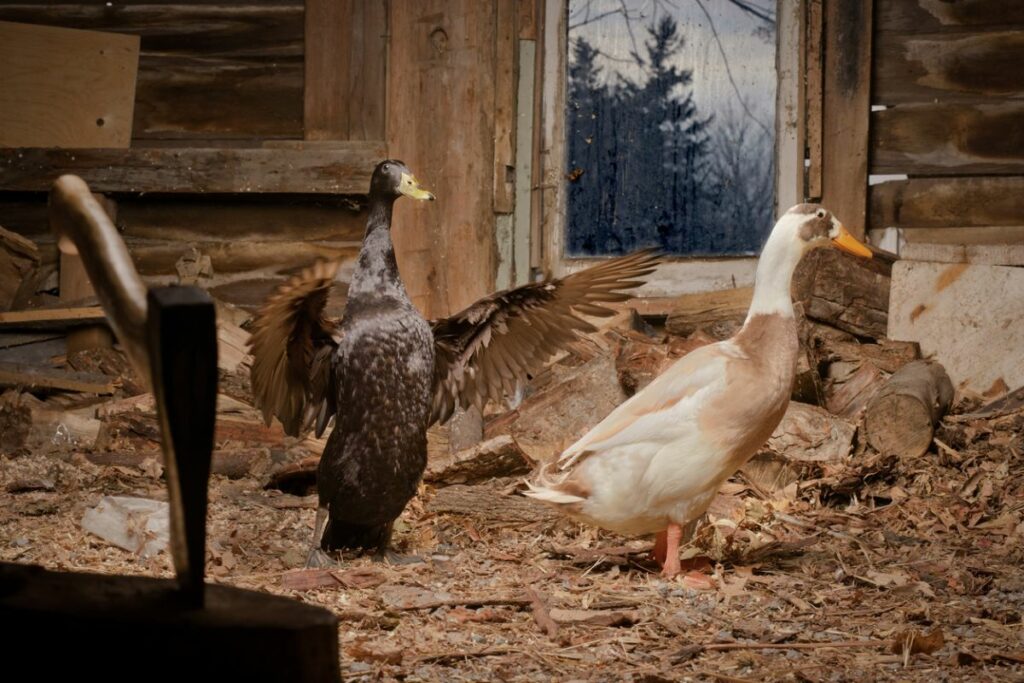
Ducks as indoor pets isn’t a good idea. While they can tolerate it for short periods of time, they’re happiest and healthiest when they’re outside. They enjoy wandering around, foraging, and swimming. So, avoid having a pet duck in the house on a regular basis.
Your duck should have a pond or pool to play in, along with a duck house for shelter. The pet duck house should have good ventilation and be secure from predators. Ducks are easy targets for predators, so even if you let them wander around during the day, you should secure them in their house at night.
The duck house should have at least ten square feet of space per bird. Most duck breeds are very social and will be happiest if there are other ducks around.
The only reason a duck should be kept inside 24/7 is if they are injured and need time to rehabilitate. Then, it will likely be safer for them indoors.
What to Feed Pet Ducks
Ducks are omnivores, so they will eat both plants and animals. In the wild, they’ll snack on things like fruit, seeds, fish, and slugs. Yet, what do pet ducks eat?
In captivity, you should still give them some free-range time so they can get benefits from these items. However, most of their nutrition will come from their feed. Feeding pet ducks a mix of duck feed and nutritional snacks is the key to keeping them healthy.
A duck-specific feed will be more beneficial than a chicken feed or all flock feed. That’s because ducks need extra vitamin B, especially niacin, in their diets. So, look for a feed that has extra niacin in it. If you can’t find a feed like that, you can add brewer’s yeast to the food to give them the ideal amount.
You can give your ducks a variety of snacks, including most fruits and vegetables. However, you should never give ducks bread. Despite common belief, bread is unhealthy for ducks and can cause health concerns if given in large doses. So, it’s best to avoid it.
Egg Production
Even as pets, female ducks will still lay eggs. They don’t need to be around males to lay eggs that are edible to humans. Yet, if you expose a female duck to a drake, she’ll produce fertilized eggs that turn into ducklings.
So, egg laying is an added benefit of keeping a pet duck. Duck eggs are considered more flavorful and nutritious than chicken eggs. Yet, most ducks don’t lay as frequently as chickens, which is why you might not see duck eggs for sale as often.
The egg production of a duck depends on their breed. Pekin ducks usually lay between 100 and 200 eggs, but a few breeds will lay less than 100 or more than 200. If you’re unsure how many eggs to expect, ask the breeder when purchasing your duck. They should be knowledgeable about the breed’s egg-laying habits.
Health Concerns
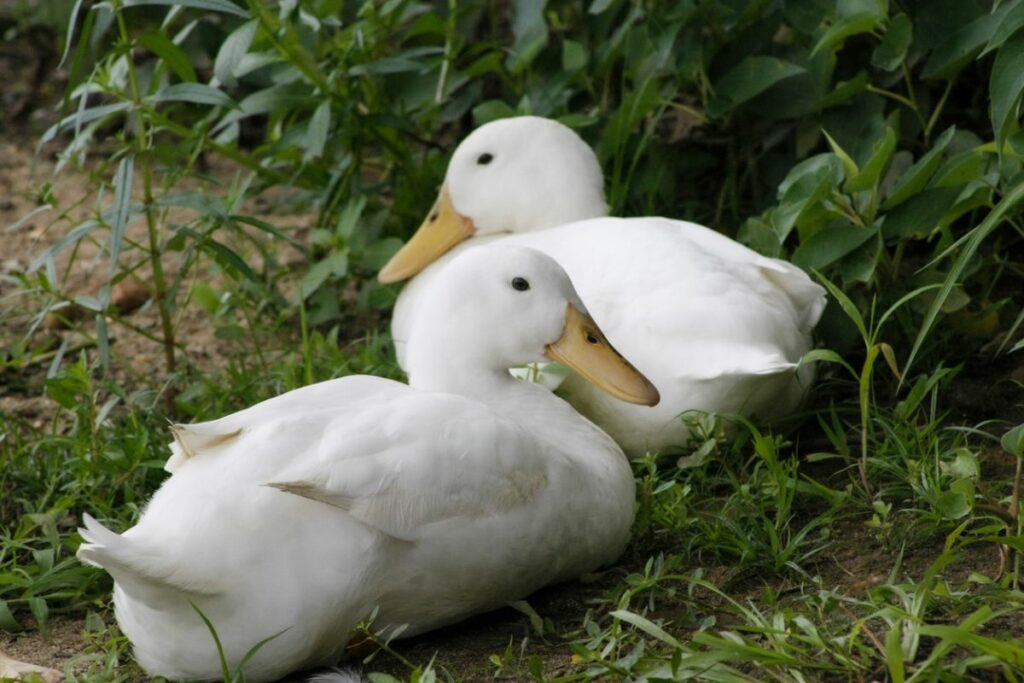
Like chickens, ducks aren’t prone to a lot of health concerns, but they can easily become ill if not properly cared for. The most common concern is mites, lice, and other parasites. Cleaning the coop regularly and using a preventative spray can help deter pests.
Ducks are also more susceptible to toxic materials than other birds are. So, keep their enclosure in an area that’s safe and away from foreign items. Replace their food and water regularly to ensure that they don’t accidentally consume something dangerous.
If you’re keeping a duck as a pet, you’ll need to take them to the vet more often than you would for livestock. Regular health check-ups can keep them safe from future concerns. However, many vets don’t take ducks or chickens, so you’ll need to research the closest bird vet in advance.
How Long Do Pet Ducks Live?
Most ducks live five to ten years. Some aspects that could affect their lifespan include diet, housing, breed, and veterinary care. So, the better you care for them, the longer they’ll likely live.
The oldest duck ever was a female mallard duck named Desi. She was 20 years, three months, and six days old. She passed away in 2002, and no ducks on record have surpassed her age since then.
Can I Release My Pet Duck?
No, you cannot release a domesticated duck into the wild. Like most domesticated animals, ducks lose a lot of their survival instincts in captivity. Plus, they’re often too overweight to migrate and escape predators. So, releasing a pet duck into the wild would be like a death sentence for them.
Ducks as Pets Pros and Cons
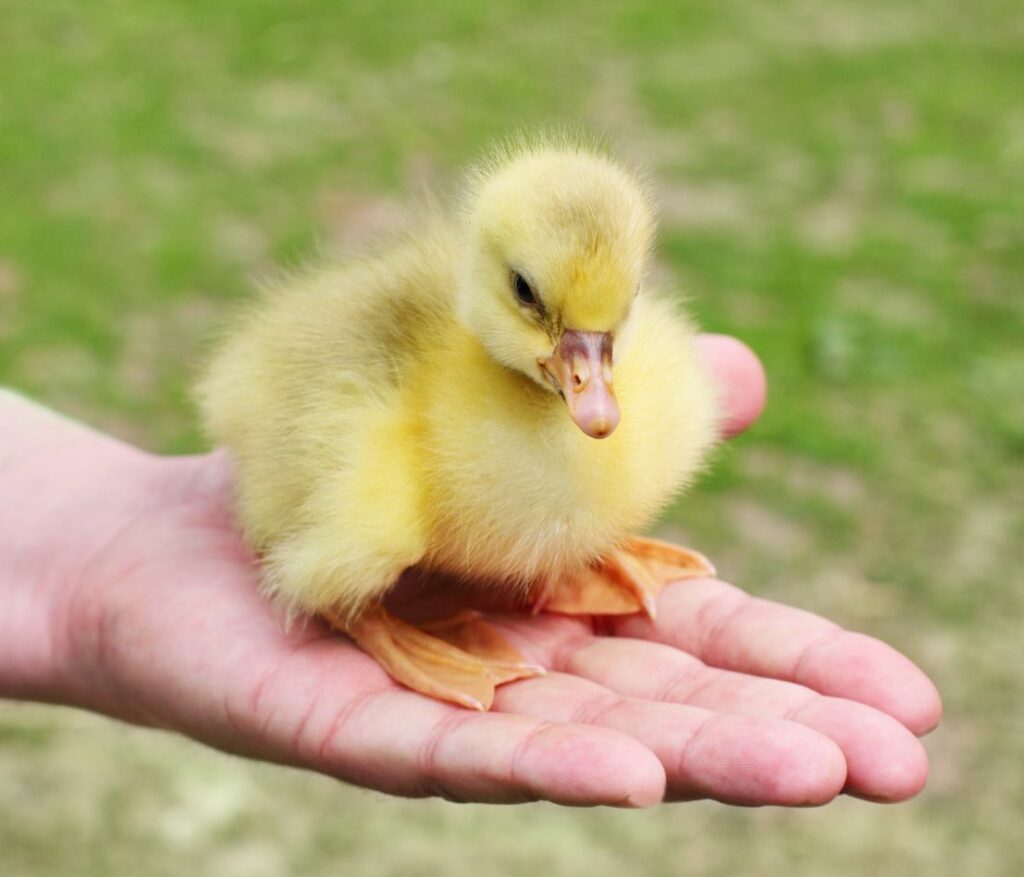
With every pet, there are positives and negatives. So, let’s consider the pros and cons of having a pet duck.
Pet Duck Pros:
- They’re easy to take care for.
- They produce eggs.
- They can be friendly.
- They’re fun to observe.
Pet Duck Cons:
- They poop a lot.
- Predators can easily capture them.
- Male ducks can be loud.
- They need water to swim in.
Frequently Asked Questions
Before you commit to a pet duck, you may have some lingering questions about their care. So, here are some things that new duck keepers commonly wonder.
Yes, ducks can fly, but it’s unlikely that they’ll fly away. Most domestic duck breeds are bred to be big, so it’s difficult for them to fly long distances. Also, like chickens, ducks are unlikely to fly away from somewhere if they’re getting plenty of food.
Yes, mallard ducks can be kept as pets, but only if you get them from a reliable hatchery. Even though mallards are common in the wild, you should never try to keep a wild animal.
No, ducks aren’t clean pets. They’re often wet and stinky, which is another good reason to keep them outside. Plus, they poop a lot more than most pets, so they require more cleanup than expected.
Are You Ready to Care for a Pet Duck?
Ducks aren’t the cuddliest, most affectionate pets, but keeping ducks as pets can still be fun. Like any pet, you need to complete plenty of research and preparations before bringing one home.
Caring for a living thing is a lot of responsibility, so you need to ensure that you’re ready to take on the challenge. The pet duck tips in this article are a great place to start!
